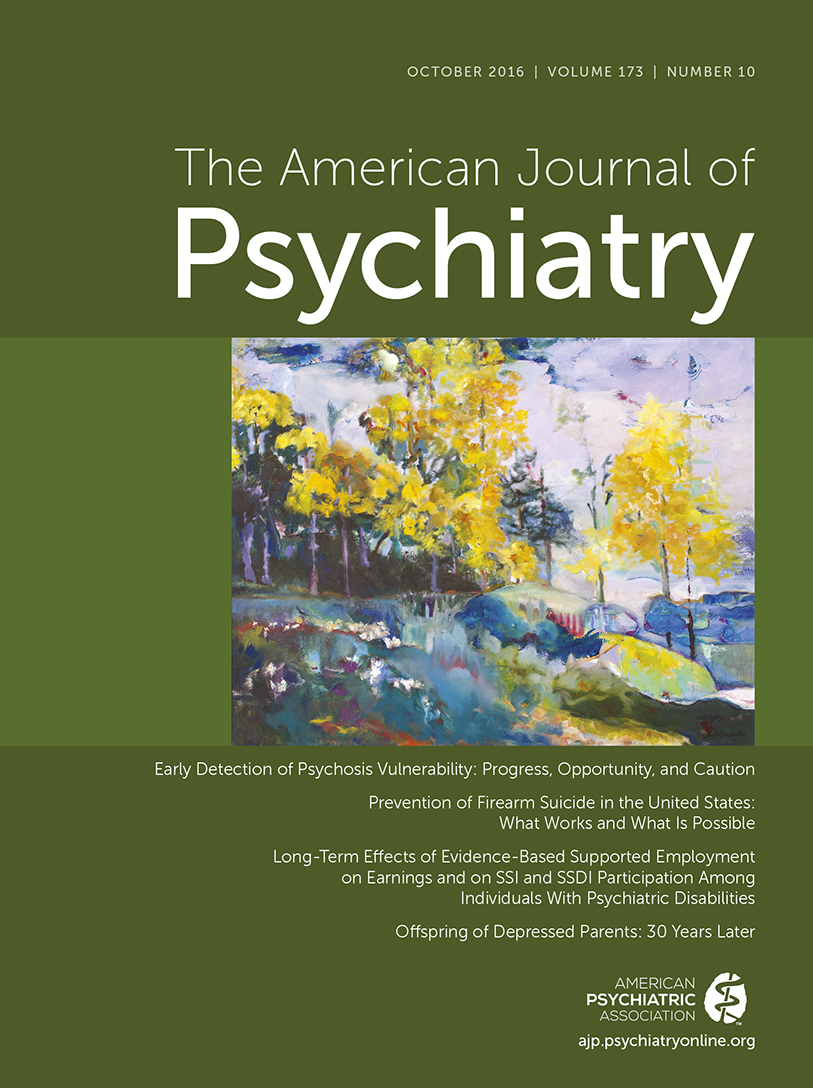Long-Term Effects of Evidence-Based Supported Employment on Earnings and on SSI and SSDI Participation Among Individuals With Psychiatric Disabilities
Abstract
Objective:
This study examines the long-term effects of evidence-based supported employment services on three vocational outcomes: labor force participation, earnings, and attainment of Social Security Administration (SSA) nonbeneficiary status through suspension or termination of disability cash payments due to work (NSTW).
Method:
Data from 449 individuals with psychiatric disabilities who participated in a multisite controlled trial of supported employment were matched to SSA data over a 13-year period (2000–2012) following supported employment services. Long-term outcomes were analyzed using random effects regression models comparing participants in the experimental and control conditions on measures of employment, earnings, and attainment of NSTW. The authors adjusted for time, age, race/ethnicity, gender, education, schizophrenia diagnosis, substance abuse history, and geographic region.
Results:
Overall outcomes were modest across the 13-year follow-up, with 32.9% of participants having any earned income and 13.1% ever attaining NSTW. Supported employment recipients were almost three times as likely as control subjects to be employed over 13 years (odds ratio=2.89). Although earnings were low, supported employment participants had significantly higher earnings per month than control subjects over time (parameter estimate=$23.82) and were more likely than control subjects to attain NSTW (odds ratio=12.99). The supported employment effect diminished and was completely attenuated over time.
Conclusions:
The study’s findings indicate a small but significant vocational advantage accruing to recipients of evidence-based supported employment in the decade following service delivery, adding to the evidence on the durability of supported employment effects. Results can inform policies designed to help workers enhance economic security and reduce dependence on Social Security disability benefits.



